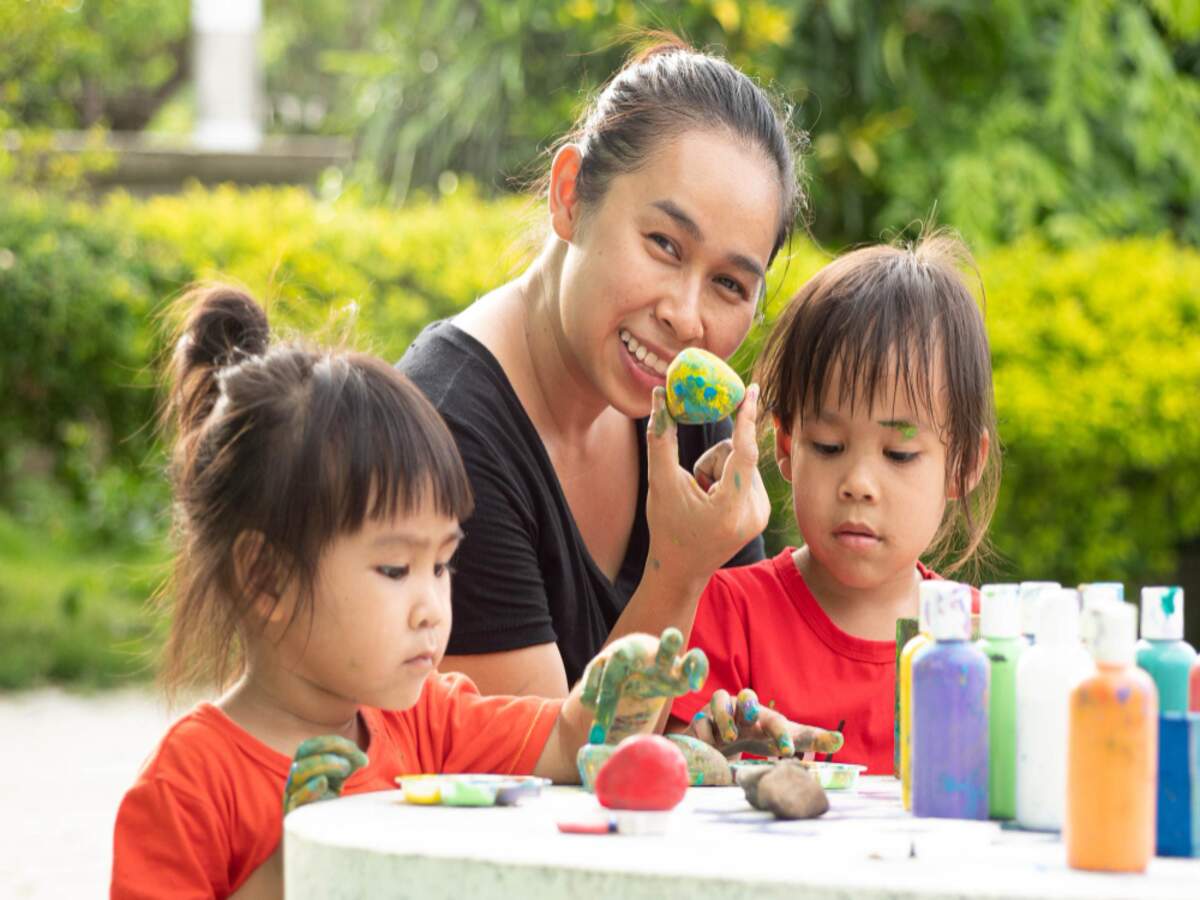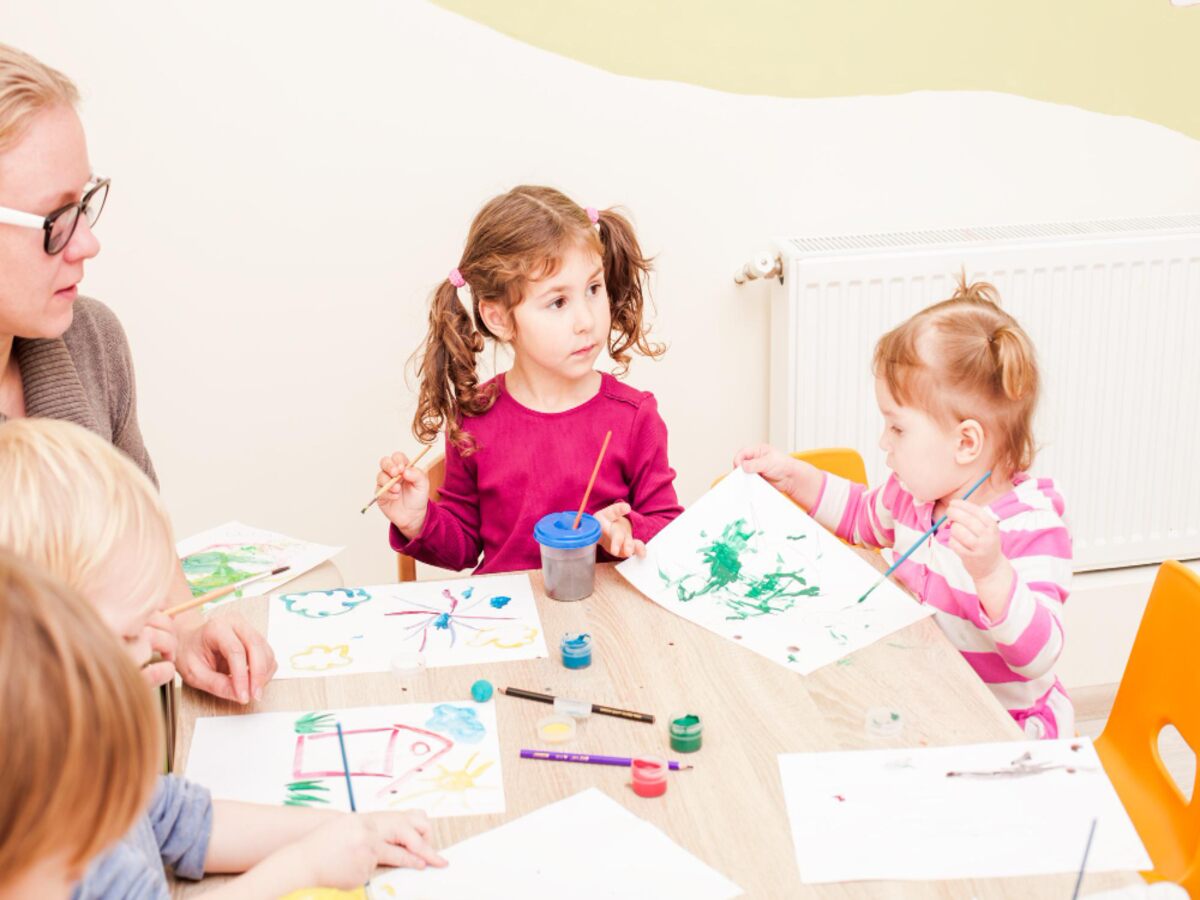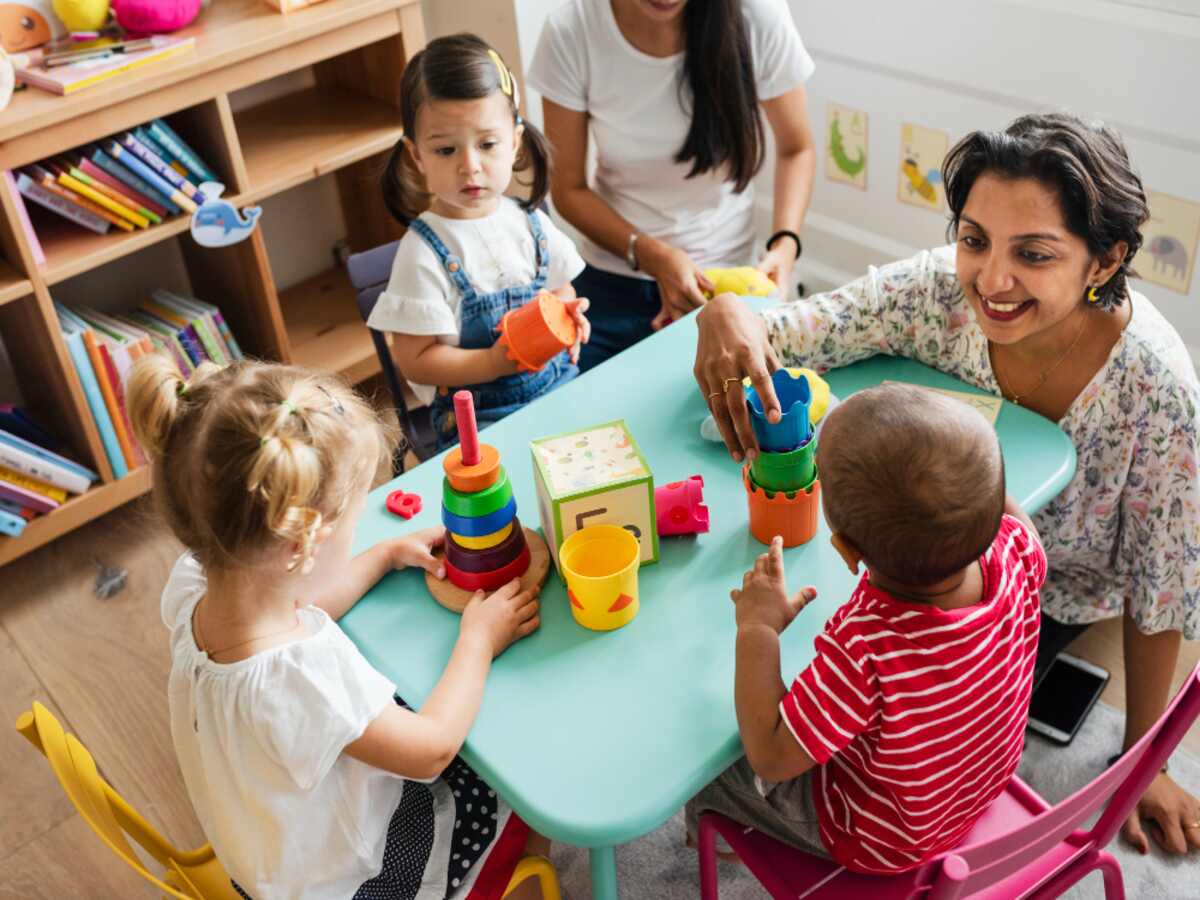The early age of a child’s life are crucial for laying the foundation for their future success. These formative moments are like fertile ground, primed to receive the seeds of knowledge, skills, and emotional intelligence that will blossom throughout their journey. Enter the vital role of early childhood education, nurturing these seeds and guiding their growth into vibrant, well-rounded individuals.
1. Boosting Academic Performance
Quality early childhood programs don’t merely introduce numbers and letters; they ignite a love for learning. Children develop essential pre-reading, writing, and math skills through playful exploration and engaging activities. This strong foundation paves the way for smoother transitions to formal schooling, boosting academic performance and fostering a lifelong love of learning. Here, let’s delve deeper into how these programs nurture young minds and equip them for academic excellence:
Pre-Literacy Blossoms:
Early childhood education programs don’t bombard children with rote memorization of letters and sounds. Instead, they ignite a pre-literacy spark through playful exploration. Finger rhymes, songs, and storytelling expose them to the rhythm and flow of language, building foundational phonemic awareness and laying the groundwork for reading fluency.
Maths Takes Flight:
Numbers and shapes are no longer abstract concepts in a well-designed early childhood program. Children learn through hands-on activities, counting toys, sorting blocks, and exploring spatial relationships. This playful exploration fosters a natural understanding of mathematical concepts, preparing them for future success in arithmetic, geometry, and beyond.
Problem-Solving Superpowers:
Early childhood education is not just about acquiring knowledge; it’s about learning how to think. Through open-ended activities and playful challenges, children develop critical thinking skills. They learn to analyse situations, formulate solutions, and overcome obstacles, building a foundation for problem-solving that will benefit them throughout their academic journey and beyond.
Curiosity Cultivated:
A curious mind is a hungry mind, and early childhood education programs are the perfect banquet for young learners. These programs nurture a natural curiosity that drives learning by encouraging exploration, experimentation, and asking questions—this thirst for knowledge fuels academic success and a lifelong passion for discovery and innovation.
2. Cultivating Confidence and Self-Esteem
Early childhood education is a breeding ground for confidence. Surrounded by positive reinforcement and supportive environments, children begin to believe in their abilities. They overcome shyness, express themselves freely, and learn to navigate new situations with self-assurance. This budding confidence becomes the bedrock for future success, empowering them to take on challenges and reach their full potential.
Positive Reinforcement:
Like sunbeams warming the earth, positive reinforcement becomes the fertiliser that nourishes a child’s blossoming confidence. Genuine praise for effort, small achievements, and unique contributions shows them a sense of value and capability. They begin to internalise the message, “I can do this!”
Empowering Environments:
Early childhood programs prioritise fostering environments where children feel safe, heard, and respected. This isn’t just about colourful walls and soft cushions; it’s about creating a space where exploration and mistakes are encouraged, curiosity finds fertile ground, and individuality is celebrated. In such an environment, children flourish, their self-esteem blooming effortlessly.
Building Resilience:
Life can be a fickle wind, sometimes gentle, sometimes gusty. Early childhood education equips children with the emotional tools to weather these storms. Children learn to navigate challenges with social and emotional development and resilience through opportunities to express their feelings, navigate social interactions, and develop coping mechanisms. This internal strength becomes a cornerstone of their lifelong self-confidence.

3. Developing Social Skills
The world of early childhood education is a hive of social interaction. Children learn to share, cooperate, and resolve conflicts, building bridges of friendship and understanding. They develop empathy and respect for others, honing their communication skills and laying the groundwork for healthy relationships.
Spread their wings in self-expression:
Early childhood experiences provide a safe space for children to experiment with their voices, gestures, and emotions. They learn to initiate interactions, ask questions, and express their needs effectively. Whether a shy smile is shared across the sandpit or a boisterous sing-along during circle time, every expression is a chance to build confidence and hone communication skills.
Pollinate friendships:
Early childhood programs facilitate a vibrant interaction ecosystem where children form fleeting friendships and lasting bonds. They learn to take turns, share toys, and navigate differences through play. They experience the joy of cooperation, discover the comfort of empathy, and learn to celebrate each other’s successes. These early friendships weave a vital social safety net, providing a sense of belonging and laying the foundation for healthy relationships throughout life.
Master the dance of conflict:
Disagreements and disputes are inevitable in this bustling social hub. However, with the supportive guidance of early childhood educators, these become opportunities for invaluable learning. Children learn to express their frustrations constructively, compromise, and find solutions that work for everyone. These conflict-resolution skills equip them to navigate the complexities of interpersonal relationships with maturity and understanding.
Navigate the social compass:
Early childhood programs become training grounds for social awareness. Children observe, understand, and respond to nonverbal cues like body language and facial expressions. They learn to decipher emotional states, anticipate their peers’ needs, and adjust their behaviour accordingly. This blossoming social compass helps them navigate the intricate world of emotions and build harmonious relationships.
4. Enhancing Brain Development
Beyond textbooks and toys, early childhood education programs stimulate the brain’s growth phenomenally. Through sensory experiences, creative play, and problem-solving activities, neural pathways are forged, enhancing cognitive development like memory, focus, and critical thinking. This robust brainpower becomes the engine driving future academic success and lifelong learning. Here’s how early childhood education acts as a brain power booster:
Sensory Explosion:
From messy finger painting to building elaborate block towers, early childhood programs engage all five senses. This sensory immersion stimulates brain activity, creating new neural connections and strengthening existing ones. The sight of vibrant colours, the feel of different textures, the sounds of music and laughter – all these experiences contribute to building a solid sensory foundation, which underpins future learning and understanding of the world.
Playful Problem-Solving:
Forget boring drills and worksheets! Early childhood education incorporates play-based learning, where children engage in purposeful exploration and experimentation. As they build with blocks, create stories, or navigate obstacle courses, they constantly encounter challenges and devise solutions. This playful problem-solving strengthens critical thinking skills, logical reasoning, and the ability to adapt to new situations – all essential cognitive muscles that will flex their might throughout life.
Language Launchpad:
Early childhood programs are language laboratories where children are immersed in a rich sea of words. They’re exposed to diverse vocabulary, sentence structures, and communication styles through songs, stories, and everyday interactions. This constant exposure stimulates brain regions responsible for language processing, laying the groundwork for solid communication skills, reading comprehension, and future language learning.
Executive Function Flourishing:
Planning, organising, and focusing are crucial for success in all aspects of life. Early childhood education programs offer opportunities for children to develop these vital executive functions. Engaging in routines, scheduling playtime, and completing small tasks independently all contribute to building self-regulation, attention control, and memory skills – the hallmarks of a well-functioning executive brain.
5. Fostering Emotional Intelligence
Early childhood education is not just about academics; it’s about nurturing emotional well-being. Children learn to identify and manage their emotions, express themselves constructively, and build resilience. This emotional intelligence lays the groundwork for healthy relationships, positive stress management, and the ability to navigate life’s ups and downs gracefully.
Identifying Emotions:
Early childhood programs incorporate playful activities and stories that help children name and recognize their own emotions and those of other children. Imagine a vibrant “feelings chart” with colourful faces displaying happiness, sadness, anger, and surprise, providing a visual anchor for children to connect their internal experiences with external expressions.
Developing Empathy:
Cultivating empathy starts with understanding others’ perspectives. Reading stories about diverse characters, engaging in pretend play where children take on different roles, and even discussing real-life situations where someone might feel sad or angry all contribute to building this crucial skill.
Positive Stress Management:
Life inevitably throws curveballs, and emotional intelligence equips children with the tools to navigate challenges. By learning to identify and manage stress, they can bounce back from setbacks and build resilience. This might involve practising relaxation techniques like yoga or mindfulness or having a trusted adult to talk to when things feel overwhelming.
Lifelong Well-being:
The seeds of emotional intelligence in early childhood care continue to flourish throughout life. Children who develop these skills tend to have better academic outcomes, healthier relationships, and greater career success. They are also better equipped to deal with life’s inevitable challenges and experience greater overall well-being.

6. Learning New Routines
From mealtimes to playtime, early childhood education programs establish routines that give children a sense of security and predictability. They learn valuable self-help skills, develop independence, and become comfortable navigating their world with autonomy. These routines become helpful building blocks for self-regulation and adaptability in their future lives.
Building Blocks of Independence:
Imagine a toddler proudly putting on their shoes, a skill mastered through the countless repetitions of the morning routine. Each button fastened, each zipper zipped, is a tiny victory, not just in motor skills, but in self-confidence and a burgeoning sense of independence. Routines empower children to navigate their world autonomously, fostering an “I can do it!” attitude that will bloom into lifelong self-sufficiency.
Security in Predictability:
In a world that can sometimes feel overwhelming, routines offer a comforting anchor. Knowing what comes next, from washing hands before snack time to the familiar lullaby before bed, provides a sense of security and emotional stability. This predictability allows children to focus their energy on exploring and learning rather than expending it on navigating the unknown.
Adaptability Takes Root:
While the core structure of routines provides stability, early childhood programs also weave in flexibility. Unexpected weather might mean an indoor picnic instead of the park, or a new friend joining the circle time might prompt an impromptu welcome song. Through these adjustments, children learn to adapt to change with grace, which will prove invaluable as they navigate the inevitable curveballs of life.
Celebrating Rituals:
Beyond the practicalities, routines can also become treasured rituals. Sharing stories at bedtime, singing silly songs during clean-up, or holding hands during walks foster connection and belonging. These shared experiences weave threads of love and joy into the fabric of children’s lives, creating memories that will stay with them long after the routines have faded.
7. Learning Teamwork
Early childhood education isn’t a solo journey; it’s a collaborative adventure. Through group activities and projects, children learn the power of teamwork. They share ideas, support each other, and celebrate collective achievements. This fosters valuable communication skills, problem-solving strategies, and an understanding that we can achieve more together.
Teamwork in action in early childhood education looks like this:
Joint problem-solving: Children tackle puzzles and challenges together, learning to brainstorm, compromise, and negotiate solutions.
Creative collaborations: Whether crafting murals, composing songs or staging pretend plays, children learn to combine their talents and imaginations to create something extraordinary.
Sharing and supporting: Early childhood programs cultivate an environment where children learn to share toys, offer help, and encourage one another. This fosters empathy, understanding, and a sense of community.
Celebrating victories: From building the tallest tower to mastering a new dance routine, children learn to celebrate each other’s successes, strengthening bonds and building confidence.
The seeds of teamwork sown in early childhood bloom into a multitude of benefits:
Enhanced communication skills: Children practice active listening, clear expression, and respectful negotiation, laying the foundation for effective communication.
Boosted problem-solving: Collaborative activities sharpen critical thinking and creativity, equipping children with the tools to tackle challenges head-on.
More vital leadership skills: As children take turns leading group projects and activities, they develop confidence, initiative, and the ability to inspire others.
Nurturing empathy and compassion: Working together fosters understanding and appreciation for diverse perspectives, promoting inclusivity and respect for others.
Building resilience: Early learning from both successes and setbacks in a collaborative environment strengthens resilience and teaches children to persevere through challenges.
Conclusion
In the grand tapestry of a child’s life, early childhood education emerges as the vibrant thread weaving together a myriad of essential qualities. From academic prowess to emotional resilience, the early childhood education benefits are far-reaching, creating a strong foundation for a lifetime of success and fulfilment. The nurturing environment of quality early childhood education program moulds not just scholars but confident, socially adept individuals with robust emotional intelligence.
As we reflect on the profound impact of these formative years, it becomes evident that investing in early childhood education is an investment in the very fabric of our society. It’s a commitment to fostering a generation equipped with the social and emotional skills and attitudes necessary to tackle the challenges of the future.
At YELAOSHR, we understand the transformative power of early childhood education. Our institute is dedicated to providing a nurturing environment where children blossom into well-rounded individuals for primary school. With a curriculum designed to stimulate academic curiosity, foster confidence, and cultivate strong social bonds, we invite you to embark on this enriching journey with us.
Enrol your child at YELAOSHR’s physical and online tuition in Malaysia and witness the magic of early childhood education unfold. Together, let’s build a foundation that not only prepares children for academic success but also equips them with the tools to navigate life’s complexities with grace and resilience with our English tuition. Invest in their future at YELAOSHR for their formal education, where learning is a lifelong adventure.



